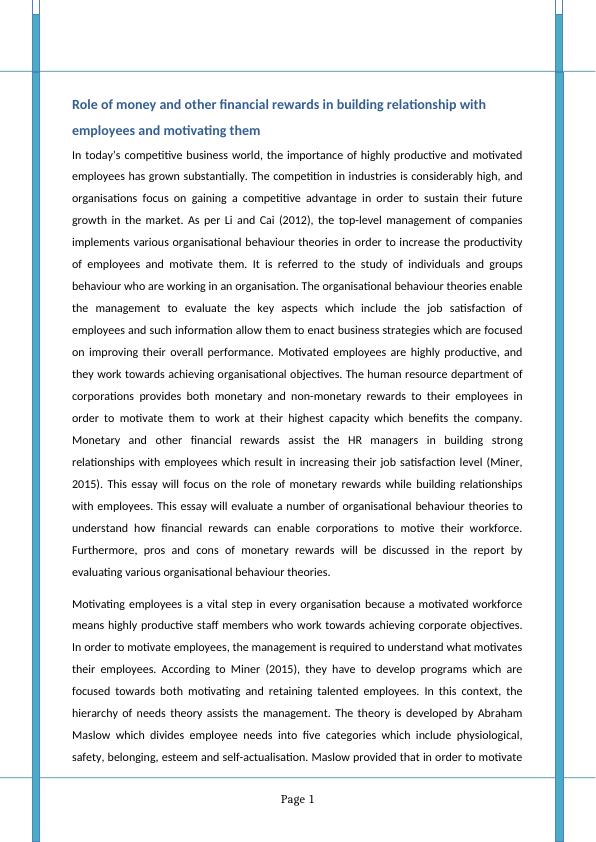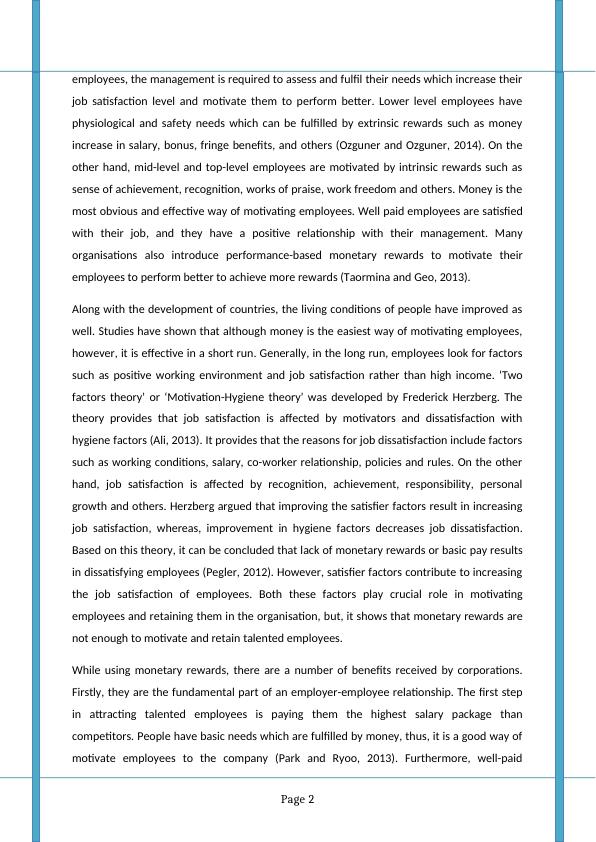Role of Monetary Rewards in Building Relationship with Employees and Motivating Them
7 Pages2167 Words89 Views
Added on 2023-06-09
About This Document
This essay evaluates the role of monetary rewards in building relationships with employees and motivating them. It discusses various organizational behavior theories and their impact on employee motivation. The essay also highlights the pros and cons of monetary rewards and how managers can use them effectively.
Role of Monetary Rewards in Building Relationship with Employees and Motivating Them
Added on 2023-06-09
ShareRelated Documents
End of preview
Want to access all the pages? Upload your documents or become a member.
Impact of monetary rewards on employee relationship and motivation
|7
|2241
|370
Pros and Cons: Monetary and Other Financial Rewards
|7
|2205
|435
Money and Other Rewards as Motivators for Employees: Pros and Cons
|8
|2464
|164
Herzberg’s Two-Factor Theory: Enhancing Employee Motivation in Healthcare
|9
|2309
|70
Factors that Motivate Employees to Work and Strategies to Cope with Negative Factors
|8
|1886
|427
Impact of Monetary Rewards on Employee Relationship and Motivation
|7
|2156
|258



